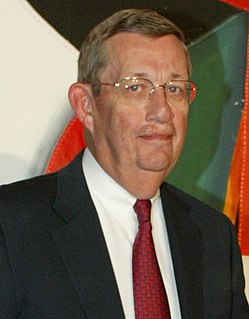A Quote by James O'Shaughnessy
Industries that make goods and services that people have to buy, regardless of economic circumstances, are bound to do well whatever the economic conditions.
Related Quotes
I have read a great deal of economic theory for over 50 years now, but have found only one economic "law" to which I can find NO exceptions: Where the State prevents a free market, by banning any form of goods or services, consumer demand will create a black market for those goods or services, at vastly higher prices. Can YOU think of a single exception to this law?
Up to now, economic development has always meant that people, instead of doing something, are enabled to buy it... Economic development has also meant that, after a time, people must buy the commodity because the conditions under which they could get along without it had disappeared from their physical, social, or cultural environment.
When we hear (as we sometimes do) that (Russia's) economic output is about half the level of a decade ago or that real incomes have fallen sharply, it is worth recalling that economic statistics under the Soviet Union were hardly more reliable than any other official statements. Moreover, a country that produces what no one wants to buy, and whose workers receive wages that they cannot use to buy goods they want, is hardly in the best of economic health.
Money is not a part of the visible sector of the economy; people do not consume money. Money is not a physical factor of production, but rather a yardstick for measuring economic input, economic outtake and the relative values of the real goods and services of the economic world. Money provides a method of measuring obligations, rights, powers and privileges. It provides a means whereby certain individuals can accumulate claims against others, or against the economy as a whole, or against many economies.
[Freedom] is the greatest of political goods. I do not say freedom is the greatest of all goods: the best things come from within they are such things as creative art, and love, and thought. Such things can be helped or hindered by political conditions, but not actually produced by them; and freedom is, both in itself and in its relation to these other goods the best thing that political and economic conditions can secure.
For when asceticism was carried out of monastic cells into everyday life, and began to dominate worldly morality, it did its part in building the tremendous cosmos of the modern economic order. This order is now bound to the technical and economic conditions of machine production which to-day determine the lives of all the individuals who are born into this mechanism, not only those directly concerned with economic acquisition, with irresistible force. Perhaps it will so determine them until the last ton of fossilized coal is burnt.



































